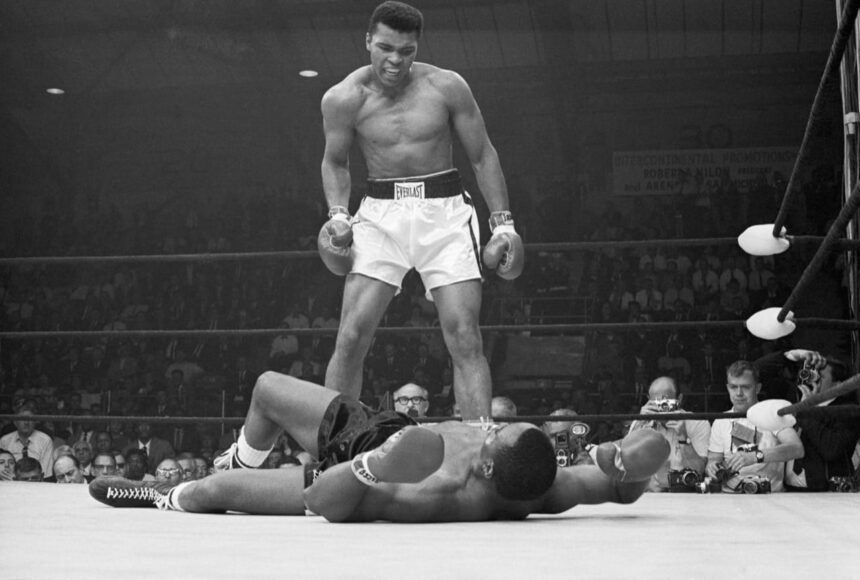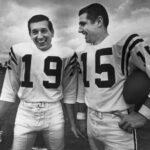Muhammad Ali, the name that resonates with boxing and civil rights history like no other. Known for his quick feet and even quicker wit, Ali transcended the confines of the ring to become a global icon of courage, resilience, and conviction. He was not just a boxer; he was a poet, a prophet of peace, a relentless advocate for civil rights, and a man who faced life with unparalleled bravery. His influence stretches far beyond the realm of sports, making him a legendary figure in the annals of American culture and history.
Early Life and Background
Born Cassius Marcellus Clay Jr. on January 17, 1942, in Louisville, Kentucky, Ali was rooted in the American South at a time of deep racial divisions. His discovery of boxing was almost serendipitous when, at the age of 12, his bike was stolen, and he vowed to pummel the thief. A police officer, who also coached boxing, guided young Cassius to channel his anger in the ring rather than on the streets. This marked the beginning of what would become a historic career. His talent was evident early on as he bagged light heavyweight gold at the 1960 Rome Olympics.
Rise in Sports / Career Highlights
Ali’s professional career took off in the 1960s, and he quickly became known for his unorthodox fighting style—floating like a butterfly and stinging like a bee—as well as his brash trash-talking. He first shook the world by winning the heavyweight championship from Sonny Liston in 1964, a victory that was considered one of the biggest upsets in boxing history. His conversion to Islam shortly thereafter, and his name change, marked the beginning of a life woven deeply with social and political threads.
Achievements and Notable Records
Throughout his illustrious career, Ali secured the world heavyweight championship three times, a feat that had never been accomplished before. His bouts, such as the “Fight of the Century” against Joe Frazier, the “Rumble in the Jungle” against George Foreman, and the “Thrilla in Manila” (again against Frazier), are etched in the annals of sports history. His career stats boast 56 wins, 5 losses, and 37 knockouts, underscoring his dominance in the ring.
Beyond the Game
Ali’s influence was never confined to the boxing ring. He was a major figure in America’s civil rights movement, vocalizing against racial injustice and the Vietnam War. His refusal to be drafted in 1967, citing religious reasons and opposition to the war, led to a widely publicized legal battle that culminated in the Supreme Court ruling in his favor. Beyond activism, Ali also ventured into the realms of acting and music, and his humanitarian efforts continued with his work with Parkinson’s disease awareness after being diagnosed with the condition in 1984.
Challenges and Controversies
Ali’s life was not without its
Challenges and Controversies
. His stance against the Vietnam War and his conversion to Islam polarized opinions across the United States. His battle with Parkinson’s disease also saw him fighting the toughest opponent of his life, yet he remained a public figure, devoted to charitable work until his death in 2016.
Legacy and Impact
Ali left an indelible mark on the world, not only as a three-time heavyweight champion but also as a charismatic leader who fought for what he believed in. His legacy is celebrated for his contributions to sport, his fearless civil rights activism, and his enduring message of peace and perseverance.
Fun Facts & Trivia
– Ali once recorded an album of spoken verse and music in 1963, titled “I Am The Greatest”.
– He appeared in a Broadway musical called “Buck White” in 1969.
– Ali saved a man from committing suicide in 1981 by talking him down from a ledge.
– He was chosen to light the Olympic torch in 1996 in Atlanta.
– Ali traveled to Iraq in 1990 to negotiate the release of hostages.








